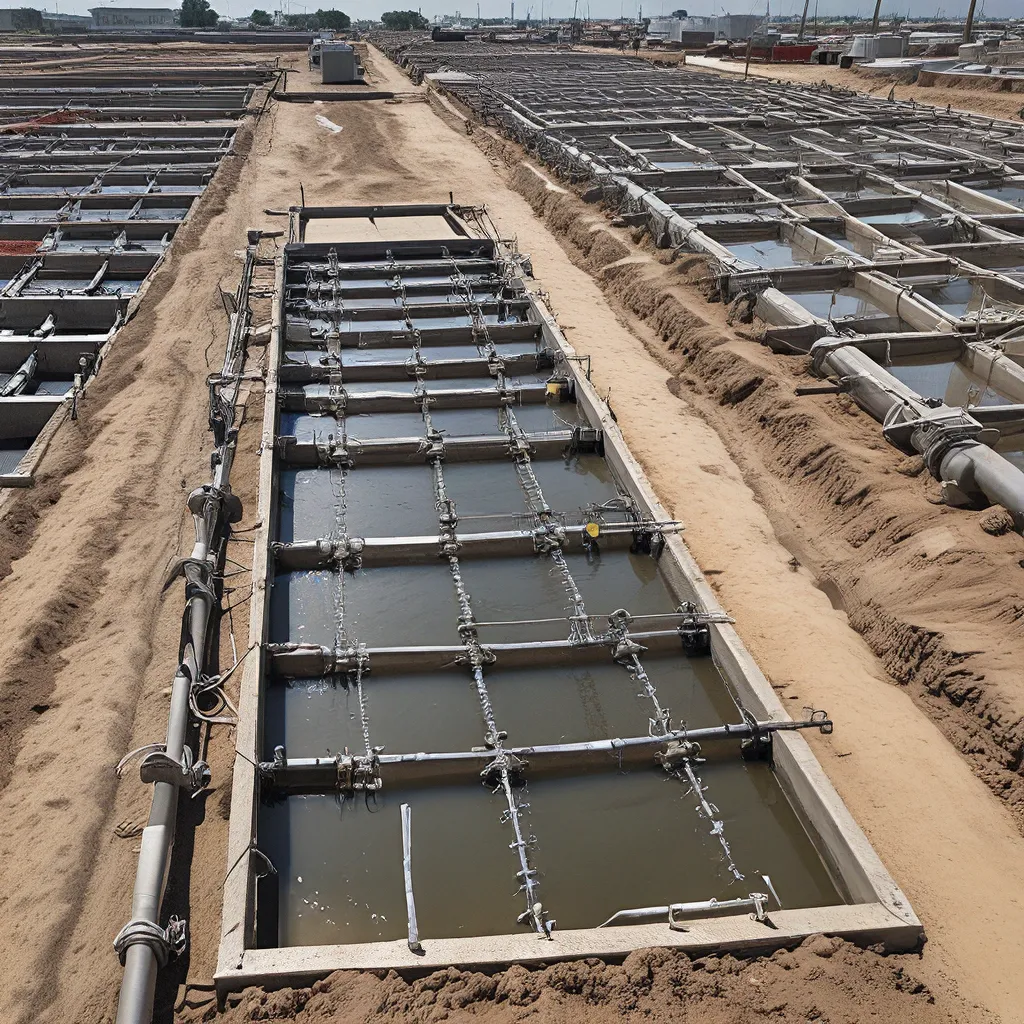
As the world grapples with the urgent challenge of climate change, one area that is often overlooked is the critical role of wastewater treatment. But hold on, don’t let your eyes glaze over just yet! This isn’t your typical dry, technical deep dive. I’m about to take you on a journey that’s as surprising as it is essential.
The Surprising Link Between Wastewater and Climate Change
You see, when we think about climate change, our minds often jump to flashy issues like electric vehicles, renewable energy, or deforestation. But what if I told you that wastewater treatment is a key battleground in the fight against climate change? Yup, you heard that right. This unassuming sector is a veritable treasure trove of untapped potential.
Let me give you a little context. Conventional wastewater treatment plants are energy-guzzling behemoths, consuming vast amounts of electricity to power their energy-intensive processes. And where does that electricity come from? Often, it’s generated by fossil fuels, which only exacerbates the climate crisis. In fact, wastewater treatment accounts for a staggering 3-4% of global electricity usage. That’s a lot of greenhouse gas emissions, wouldn’t you say?
But here’s where things get really interesting. What if I told you there’s a revolutionary approach to wastewater treatment that can slash emissions and transform this industry into a climate solution? Enter the world of decentralized wastewater solutions.
Decentralizing the Future of Water
Imagine a world where wastewater treatment isn’t confined to these centralized, energy-hungry facilities, but rather, distributed across smaller, more efficient systems. This is the promise of decentralized wastewater solutions, and it’s a game-changer.
Decentralized wastewater treatment systems are designed to operate at a local level, serving individual buildings, communities, or small clusters of homes. These systems leverage innovative microbial technologies to treat wastewater without the need for energy-intensive aeration or complex machinery.
The benefits are truly remarkable. By decentralizing the process, these systems reduce the environmental impact of wastewater treatment. They minimize energy consumption, lower greenhouse gas emissions, and enable water reuse – all while maintaining safe and reliable sanitation. It’s a win-win-win situation!
And the best part? Decentralized solutions are already making waves in the industry. Take Aquacycl, for example. This innovative company has developed a revolutionary microbial-based technology that can treat wastewater while generating renewable energy. Yes, you heard that right – treating wastewater and producing clean energy at the same time. It’s the ultimate decarbonization dream!
Orianna’s Journey: Pioneering Decentralized Solutions
As I delved deeper into this fascinating world, I had the privilege of connecting with Orianna Bretschger, the CEO and Founder of Aquacycl. Her passion and vision for the future of water are truly inspiring.
Orianna’s journey in the water industry began with a deep understanding of the critical role that microbes play in wastewater treatment. She recognized that by harnessing the power of these tiny organisms, we could unlock a new era of energy-efficient, decentralized solutions. And that’s precisely what she set out to do with Aquacycl.
Aquacycl’s technology is a game-changer, combining microbial-based treatment with the ability to generate renewable energy. Instead of relying on energy-intensive aeration, Aquacycl’s systems leverage the natural metabolic processes of specialized microbes to break down organic matter and purify the water. And the best part? This process produces clean, renewable electricity that can be used to power the system itself or even fed back into the grid.
But Orianna’s vision extends far beyond just developing cutting-edge technology. She’s on a mission to transform the way we think about water and sanitation. By championing decentralized solutions, she’s empowering communities to take control of their own water resources, reducing environmental impact, and driving the transition to a more sustainable future.
The Future of Water: Decarbonizing and Decentralizing
As I listened to Orianna’s story, I couldn’t help but feel a sense of excitement and optimism for the future of water. Decentralized wastewater solutions aren’t just a pipe dream; they’re a reality that is already taking shape, and they have the potential to revolutionize the way we manage our water resources.
Imagine a future where every building, community, or small cluster of homes has its own self-sustaining wastewater treatment system, powered by renewable energy and recycling water for local reuse. This isn’t science fiction; it’s a future that’s within our grasp, and it’s all thanks to the innovative thinkers and pioneering companies like Aquacycl.
But the journey ahead isn’t without its challenges. As with any transformative technology, there are obstacles to overcome and skepticism to address. Questions around scalability, integration with existing infrastructure, and regulatory frameworks will all need to be carefully navigated.
However, I’m confident that with the right vision, dedication, and collaborative efforts, we can overcome these hurdles and unlock the full potential of decentralized wastewater solutions. After all, the stakes are too high to ignore the climate-changing power of this unsung industry.
So, are you ready to dive into the future of water? It’s time to embrace the decentralized revolution and harness the power of microbes to revolutionize wastewater treatment and drive sustainable change. The journey may not be easy, but the rewards are truly transformative.
Alpha Wastewater Solutions is at the forefront of this decentralized revolution, providing cutting-edge technology and expert guidance to help communities and businesses transition to a more sustainable water future. Join us as we redefine the future of water and tackle the climate crisis head-on.